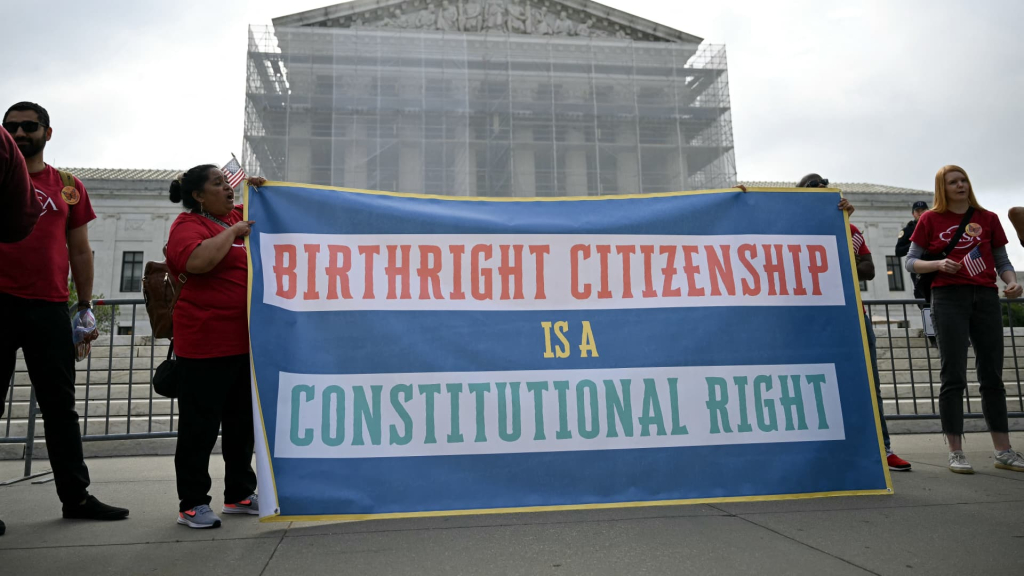On Thursday, President Donald Trump reiterated his call for the abolition of birthright citizenship in the United States, coinciding with the Supreme Court’s impending hearings regarding the authority of lower-court judges to issue national injunctions against executive actions while litigation is ongoing.
This case emerges amidst Trump’s executive orders addressing a variety of issues that have faced halts by federal district court judges.
“Big case today in the United States Supreme Court,” Trump commented in a post on social media.
He further stated, “Birthright Citizenship was not meant for people taking vacations to become permanent Citizens of the United States of America, and bringing their families with them, all the time laughing at the ‘SUCKERS’ that we are!”
Upon returning to the White House in January, Trump signed an executive order asserting that the 14th Amendment of the Constitution does not, despite historical conventions, automatically confer American citizenship on those born in the country.
In his Thursday post, Trump contended that the amendment was originally intended solely to grant citizenship to the offspring of enslaved individuals prior to the Civil War’s conclusion.
He claimed that it “has nothing to do with Illegal Immigration for people wanting to SCAM our Country, from all parts of the World, which they have done for many years,” urging, “Please explain this to the Supreme Court of the United States.”
During the hearings, the Supreme Court is not anticipated to rule on the constitutionality of Trump’s order related to the interpretation of the 14th Amendment.
Rather, the Court will address the implications arising from three federal district court lawsuits challenging Trump’s directive.
The principal issue revolves around whether district court judges are able to enact nationwide blocks on a presidential order or limit those blocks to specific states or individuals involved in the lawsuits.
The lawsuits include challenges from over 20 states and two cities, as well as a separate case presented by five pregnant non-citizens and two immigrant advocacy organizations.
Judges in all three cases have issued rulings that temporarily prevent the enforcement of Trump’s executive order, with three federal circuit courts of appeals largely sustaining these rulings.
This is developing news. Check back for updates.


























